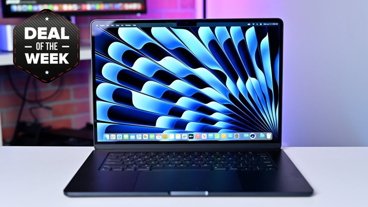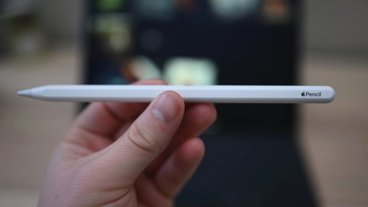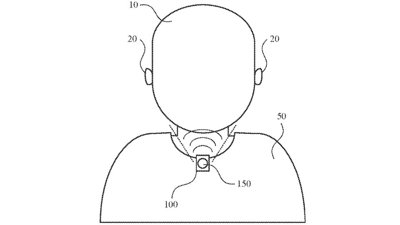iPhone yearly sales rate should top 45 million by 2009, says firm
While categorizing its prediction is a bold one, research and investment firm PiperJaffray said Thursday it believes Apple can grow its iPhone sales into a 45 million unit per year business by the 2009 calendar year.
"It is critical to keep in mind that the iPhone will be a combo device (iPod and mobile handset), which will attract more than just a mobile phone customer," analyst Gene Munster wrote in a report on the matter.
In support of his estimates, which factors in cannibalization of standalone iPod models, the analyst pointed to Motorola's widely successful RAZR handset, which reached record sales volumes in a relatively short time following its inception.
"While Motorola has stronger global distribution than Apple and the RAZR retail price fell well below $300 by 2006, this is one example of a successful product selling tens of millions of units in a 12-month period," he explained.
After tapping fellow wireless analyst Mike Walkley for his advice on the matter, Munster said he expects iPhone to have somewhat limited impact on other mobile handset manufacturers. As such, he does not believe the iPhone will compete with the more enterprise-based smartphones, but does see the device scrapping for higher-end consumer dollars.
"The currently declining Motorola market share at AT&T will continue and other higher-end multimedia devices such as Palm and HTC could suffer slowing sales versus his expectations of strong initial iPhone sales," he wrote.
However, the analyst said that BlackBerry, which launched its $199 Curve device this week, could end up competing with the iPhone and may even benefit from increased store traffic from the iPhone launch. He believes consumers walking into AT&T stores to view iPhone could end up walking out with a Curve given its similar features at a substantial discount ($199 versus expectations of $499-plus for the iPhone). Still, he expects "very strong initial sales of the iPhone" due to checks indicating a strong consumer interest and wait lists already at AT&T stores for the product.
Given the enormous global buzz going into the iPhone launch, Munster said its more than likely that rivals are preparing to declare war on Apple and AT&T by launching a series of promotions to prevent users from switching to AT&T.
"The most powerful tactic will likely be deep subsidies on cutting edge music phones," he said. "For example, Verizon has several new music phones launching, including an improved version of its Chocolate phone. In addition, Verizon recently lowered prices on several music phones such as the VX8600 from $130 to $80, and VX8700 from $180 to $150."
Demonstrating the strength of music phone sales, Walkley's May checks indicated the $100 UpStage was the top-selling phone at Sprint, passing the $25 RAZR. Similar to Verizon, Sprint increased its marketing of music phones ahead of the iPhone launch, he said, as the UpStage fell from $150 to $100.
Munster expects those deep subsidies to run indefinitely, which is one of the reasons he is keeping a modest lid on iPhone estimates in 2007 and 2008 (3.2 million and 12.4 million, respectively). While the iPhone will be competing with handsets that are free or near free, he remains confident in the device's success. For example, he pointed to the the history of the MP3 player market as a benchmark, where the iPod grew market share from 31 percent at the end of 2003 to 65 percent at the end of 2004, with an average iPod price of $290, when players like Samsung, Creative, Dell, and Sony had products priced (with less functionality) at less than $150.
"The bottom line: just because something is inexpensive or free doesn't mean people will want it," the analyst wrote.
At the same time, Munster does not believe enterprises will purchase the iPhone due to its touch screen keyboard and multimedia functions, as many businesses do not allow features such as cameras. "Would organizations really purchase products for its employees that provide them more entertainment and perhaps limit productivity?"
The analyst, who maintains an Outperform rating on shares of Apple, raised his price target on shares of the company's stock to $160 from $140.
"We believe investors should own shares of Apple today for the 2009 ramp in iPhones," he wrote.
 Katie Marsal
Katie Marsal













 William Gallagher
William Gallagher

 David Schloss
David Schloss
 Andrew Orr
Andrew Orr

 Marko Zivkovic
Marko Zivkovic
 Wesley Hilliard
Wesley Hilliard
 Andrew O'Hara
Andrew O'Hara








41 Comments
Ooh.. time to speak to my broaker again I think!
Not trying to be a downer here, but I have to say that 45 million units a year by 2009 seems overly optimistic. Yeah, the market is huge, but the iPhone's segment of it isn't, so much. They'd likely have to be very aggressive on price to hit those numbers, and that's not Apple's game usually.
I'm getting the odd feeling that the 'fix' is in on Apple stock, and that its being pumped/hyped beyond realistic expectations so that the big boys can ride the roller coaster up, and then dump the stock for a huge profit.
'Buy and hold' investors won't be hurt, but speculators jumping in late will be. Ah well, it was ever thus.
.
Presumably there will be a downward effect on the sales of iPods as people consolidated the two devices with the iPhone.
45m iPhones, sure. But there's 25 million people there who didn't replace their old iPod and who opted for a 16/32/64GB iPhone instead (in 2009).
And in a slightly more forward looking statement Munster is also predicting Apple will own 40% of everything by 2010.
D
What is the basis for this number? Look to see what is the best selling phone ever, and see if it's close to 45 million.